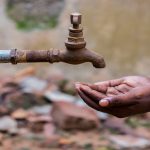The largest polluters on the planet are also those who suffer the least from the dangers of climate change. Alternatively, those polluting the least will be the ones most impacted by the consequences of our changing world.
It is no secret that not everyone has the same responsibility for global warming. Indeed, when we look at the causes of the global climate crisis, most of them can be attributed to the richest countries. In fact, of the 10 biggest emitters of CO2 in the world per capita (including emissions imported via consumption), 7 are “rich” countries. They are distributed mainly between Western Europe and America North, and are, more specifically and by order: the United States, Japan, Russia, Germany, United Kingdom, Italy, and France.
It makes sense: the more we consume, the more CO2 we emit. And since “rich” countries have more money to spend on consumption than developing countries, they are generally the ones contributing the most to global warming. Perhaps unfairly – one might wonder – these large polluters are also the ones who will suffer the least from the consequences of global warming for which they are accountable. On the contrary, the poorest countries, those who have contributed the least to global warming, are those who will suffer the most.
Poor And Vulnerable Countries Will Face The Consequences Of Global Warming
This is the result of a study published in the journal Science Advance: global warming is deeply unfair. Indeed, researchers have measured the vulnerability to global warming in different regions of the world. They found that warming will have more consequences in some areas than in others.
The regions that are already hot, for example, will find it more difficult to cope with global warming. The more fragile tropical areas will also suffer more damage. Conversely, the temperate zones of the northern hemisphere are not expected to face such hard challenges.
The problem is that these hot, arid or tropical zones are also those with poorer countries that pollute less than Europe, the United States or China. Basically, a country like Brazil, despite polluting relatively less compared to a country like France, will suffer more negative consequences from global warming.
Climate Inequality: A Global Phenomenon
This phenomenon, which is often described as climatic inequality, is unfortunately generalized: the countries most vulnerable to global warming are also those which have contributed the least to it.
But this also applies at an intra-state level. Within a single country, it is often those who contribute the most to CO2 emissions and pollution that suffer the least. For instance, a study conducted in the United States confirmed global warming is affecting the southern regions of the country, which are on average poorer, with greater intensity.
But it is not just a regional issue: climatic hazards are more likely to affect populations who are already vulnerable. For example, climate disasters will first affect farmers, who are amongst the poorer. As a result of shorter crop yields, food prices are likely to increase and the ones most affected by it will first be the poorest. As for the wealthiest, they often have the capital necessary to deal with the problems inherent in climate change.
However, it is now widely demonstrated that the rich (more likely to consume more, have larger homes, travel more or have larger vehicles) pollute more and have a larger carbon footprint than the poor. They do it because they can spend more money on consumption items, leisure activities or travel with a greater commodity. And it is this same wealth that leaves them less vulnerable to the consequences of environmental changes.
How To Reduce Climate Injustice?
Today, the inequality and climate injustice we have been discussing are increasingly at the heart of climate negotiations. In the Kyoto Protocol and then in the Paris Agreement, world leaders have also agreed to establish the principle of “common but differentiated responsibility”.
The idea? Each country is indeed responsible for the fight against global warming – but those who have contributed the most to the problem must contribute with more means to the cause. But for the moment, this principle is still very hard to apply. For instance, the Green Fund, a financial mechanism under the UNFCCC was intended to finance the ecological transition in poor countries. Nonetheless, it has been going through hard times to find investment funds.
The other problem is that there is no precise mechanism to manage climate injustice at an individual level. Thus, there is no real tax on CO2 emissions that would allow the wealthy (who pollute more) to contribute more to national efforts to fight global warming. In the end, today, those who pollute the least will not only suffer more the consequences of global warming. They will as well contribute to mitigating its effects as much as everyone else.
[Image credits to water on Shutterstock]

